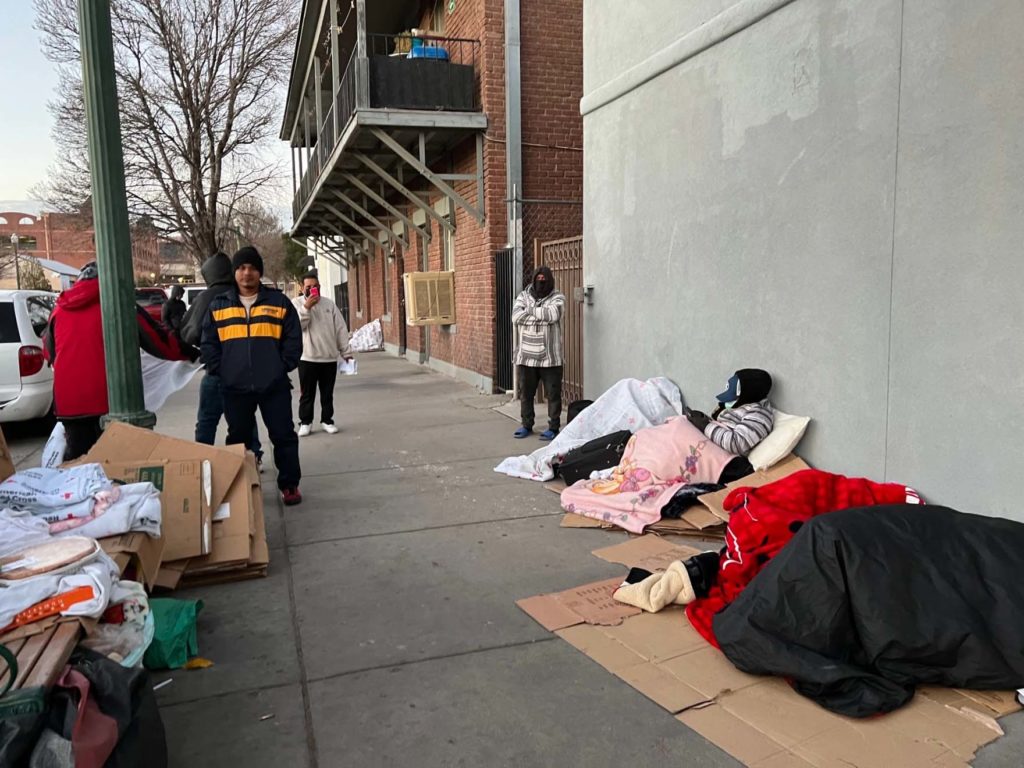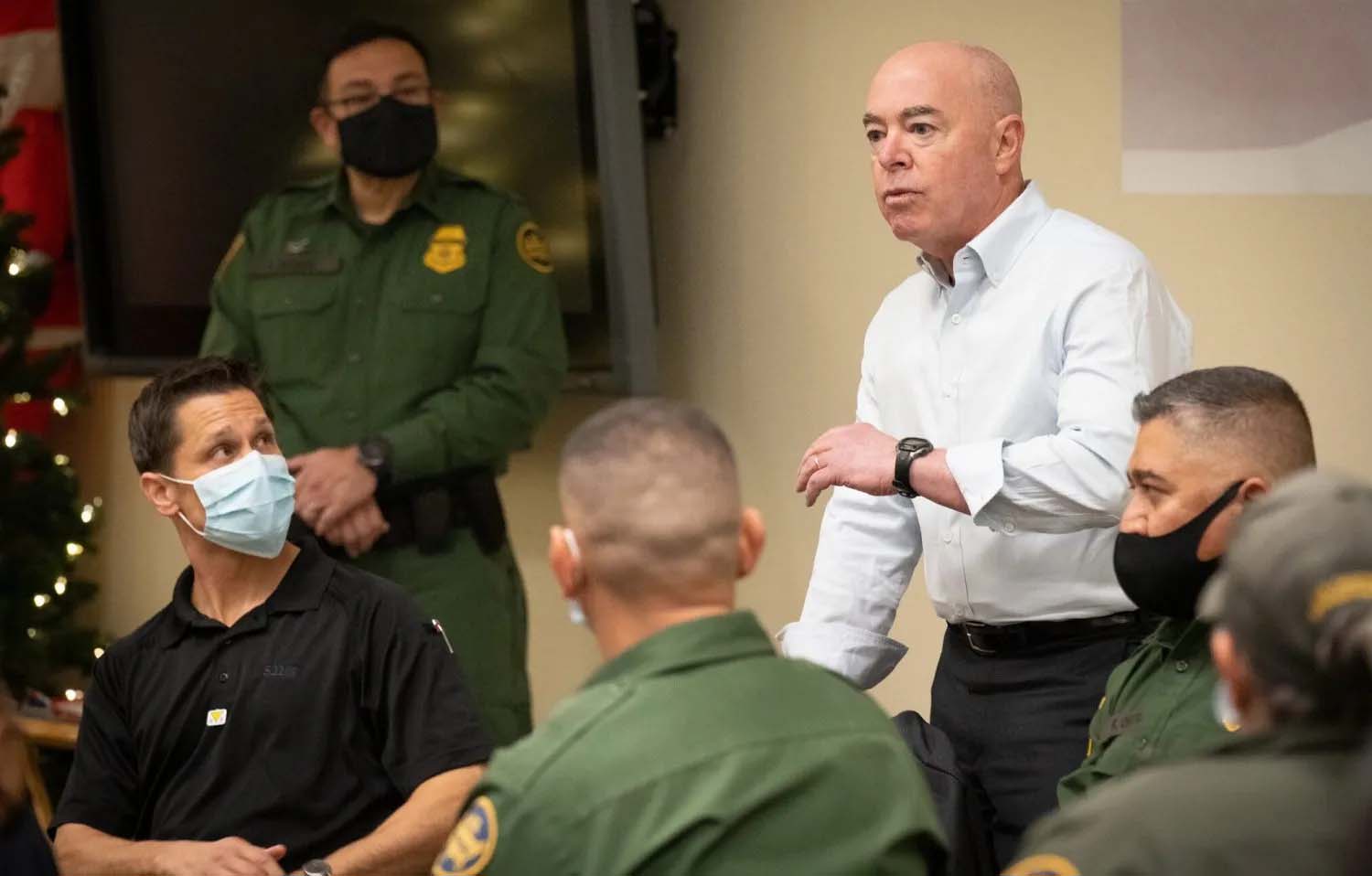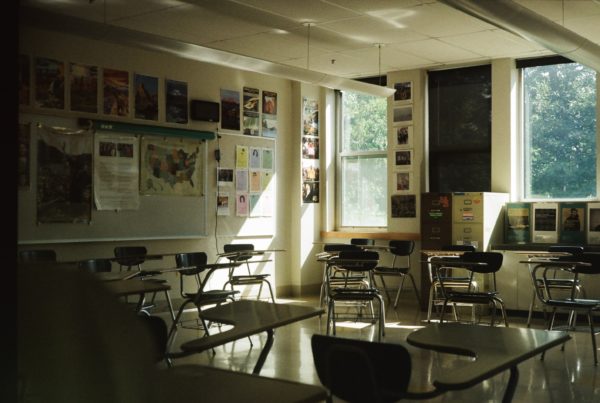From KTEP News:
EL PASO – Department of Homeland Security Secretary Alejandro Mayorkas visited on Tuesday this border city beset by the latest migrant surge, assuring local leaders that plans are underway for the lifting of a pandemic-related public health order.
Mayorkas also had choice words for migrants listening to smugglers urging them to make a run for the U.S. border by Dec. 21. That’s the day that the rule, known as Title 42, will be lifted under orders from a federal judge.
Mayorkas’ message to migrants: “You are only imperiling your lives, and you’re wasting your money, and you are proceeding in very fragile terrain.
He was speaking to reporters, including a KTEP public radio journalist. “The plan that we have set out is to enforce our immigration laws,” he said. “That means our laws of asylum and our laws of removal are laws of enforcement.”

Homeland Security Secretary Alejandro Mayorkas spoke with El Paso reporters Tuesday.
Angela Kocherga / KTEP News
After Title 42 is lifted, he said, part of the Biden administration’s contingency plan is “an increased reliance on expedited removal, which means people will be removed very quickly, and that’s the message they should hear.”
U.S. Rep. Veronica Escobar, D-El Paso, said the number of migrants crossing the border has “created an unprecedented strain” and requires more federal resources.
“While I am extremely grateful to the Biden administration for the millions of dollars they have provided El Paso in financial support, in both upfront funding and reimbursements, as well as their ongoing work with neighboring countries to address root causes, that long-overdue work will bear fruit immediately,” Escobar said.
She said she asked the Biden administration for more resources to local governments and funding to federally-operated short-term emergency shelters.
In El Paso, the Border Patrol’s central processing center is well above capacity. Shelters are full and dozens of migrants spent Monday night on the streets as temperatures dipped below freezing.

Migrants used cardboard and donated blankets as they prepared for a cold night on the street in El Paso on December 12, 2022.
Angela Kocherga / KTEP News
Mayorkas, who’s been under fire by Republicans for what many call Biden’s “open border” policies, said, “Remember, what we are seeing is people who are claiming asylum. And we see them surrendering themselves to Border Patrol to assert their claims for humanitarian relief, as our laws provide.”
When asked by KTEP about images of hundreds of migrants a day wading across the Rio Grande, he said, “Quite frankly, it’s an extraordinarily powerful picture of why we need our immigration system reformed through legislation. Our asylum system is broken. Our immigration system as a whole is broken. It hasn’t been updated or reformed in more than 40 years.”
Mayorkas applauded the efforts of Canada, whose immigration system, he said, is more “nimble” and can be “retooled to the needs at the moment.”
“For example, Canada is in need of 1 million workers, and they have agreed that in 2023, they will admit 1.4 million …. to fill that labor need… That’s a system that addresses the labor needs, according to a willing labor force. We [in the U.S.] are stuck in antiquated laws that do not meet our current needs.”
Mayorkas said finding a solution to the humanitarian crisis requires collaboration throughout the hemisphere, including countries in Latin America, especially Mexico he referred to as “incredibly productive partnership.” he said. And he pointed to what he called “a success story” – the creation of humanitarian visas for Ukrainians and Venezuelans.
He refused to share details about cooperation with Mexico but said efforts that have led to a dramatic decrease of Venezuelan migrants arriving at the border. Instead, they are now applying for asylum abroad or before leaving home.
This story is a collaboration between Angela Kocherga of KTEP public radio in El Paso and Mexico Border Correspondent Alfredo Corchado. KTEP’s Aaron Montes contributed to this report.












